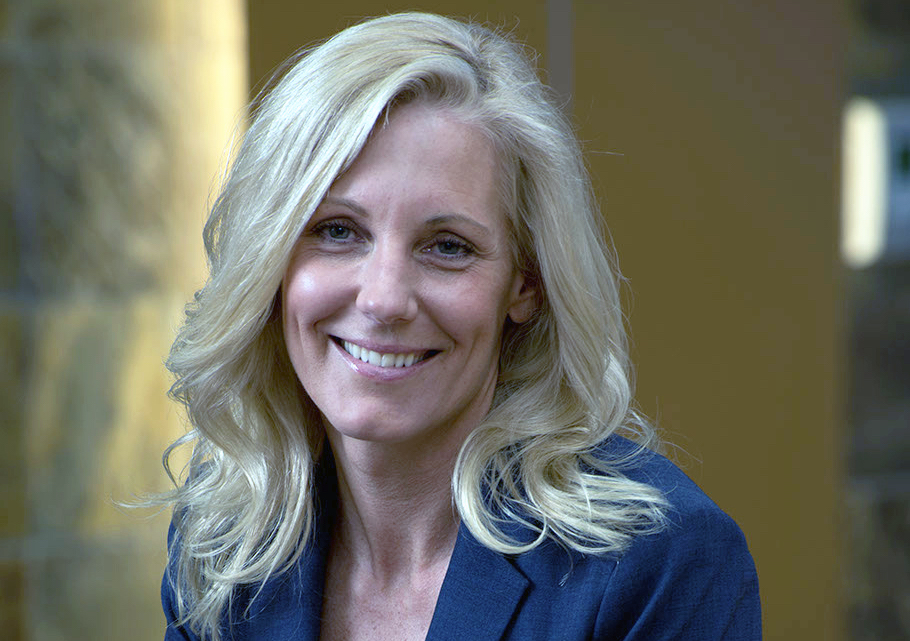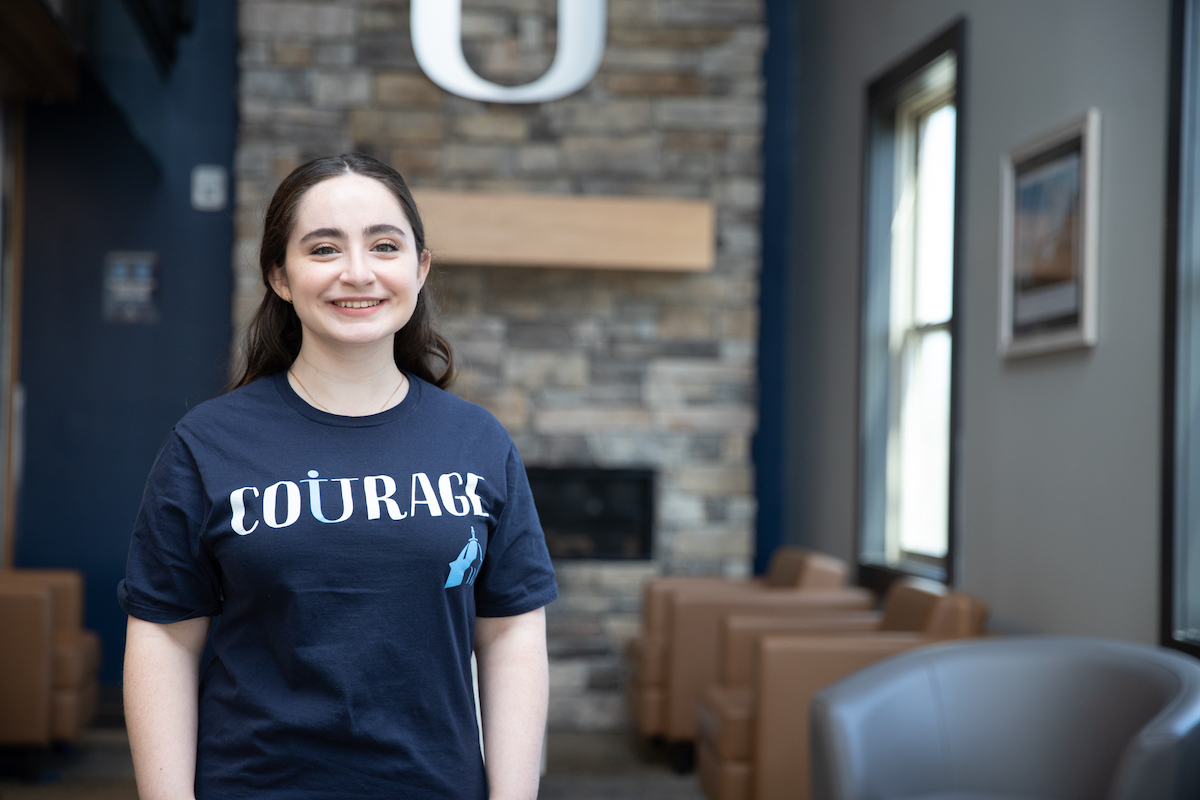In 1999, she became the first woman in the world to perform the laparoscopic gastric bypass.
Low self-esteem, negative body image, clinical depression—these are some of the emotional consequences of obesity noted by the Centers for Disease Control and Prevention (CDC).
“In my opinion, there’s no segment of our population that is more misunderstood and mistreated than obese people,” Julie Ellner ’89, M.D. emphasizes.
Dedicating her entire professional career to bariatric surgery, Julie Ellner ’89, M.D., helps obese patients forge healthier lives. In 1999, she became the first woman in the world to perform the laparoscopic gastric bypass. Ellner now owns a private practice in San Diego, California and serves as the medical director of the Alvarado Hospital Medical Center Bariatric Program. She shares her expertise with other surgeons through her clinical instruction in over 50 bariatric surgery courses across the country.
Ellner understands that weight stigma is a real problem. The CDC defines weight stigma as the inclination to form unreasonable judgments based on a person’s weight. People experiencing weight bias have increased by two-thirds in the last decade according to a 2020 study by the National Center for Biotechnology Information.
Statistics from the CDC are alarming. Obese adults, especially women, earn 1% to 6% less than average-weight people in similar jobs. They are promoted less frequently and viewed less competent than their peers. Doctors spend less time examining obese patients and remain reluctant to perform preventive health screenings.
The National Institutes of Health Consensus Panel and the FDA regulate eligibility for weight-loss surgery based upon an individual’s Body Mass Index (BMI). Today, there are surgery options that include traditional operations like the gastric bypass or gastric band, or one of the newer procedures such as the V-Bloc or the sleeve gastrectomy. For patients with a lower BMI, a non-surgical treatment like the Orbera Gastric Balloon is available. To Ellner, obesity is a deadly disease, and she emphasizes that these surgery options are not cosmetic procedures.
In her experience, 90% of patients who have a gastric bypass watch their high blood pressure and diabetes dissipate within about 48 hours, and they leave the hospital free of medications. The weight loss from all the procedures can make sleep apnea disappear. Low testosterone normalizes. Infertility reverses. Migraines disappear. Cancer risk plummets. People experience heightened self-esteem and confidence, which helps many eliminate anti-depressants. Her greatest gift is when a patient thanks her for “giving them their life back.” She is continually impressed and inspired by her patients, as many of them take up hiking, surfing, running and other activities after losing weight.
The gift of compassion for her patients has its foundation in her own family’s struggle with weight issues. She describes the mental and physical impact of obesity as devastating and cites that major depression among morbidly obese persons has reached 89%.
From a young age, Ellner learned to live life as an outsider. Growing up in the small town of Funk, Nebraska as the only girl in her class, she developed friendships with boys and did not transition easily to high school when she eventually encountered girls her own age. Her experience of not fitting in with her peers and encounters with bullies contributed to her desire to succeed in life so she could finally leave Funk.
“Like my grandmother, the best way to motivate me to do anything was, and still is, to tell me that I can’t,” she admits with a grin. A tipping point came when Ellner’s first grade teacher told her that she couldn’t become a doctor—she had to be a nurse, because she was a girl.
Not everyone tried to dissuade Ellner from her career dreams. As the only general surgeon in the area, Dr. Doolittle allowed her to accompany him as he operated in small towns all over south central Nebraska. The experience exposed her to the clinical environment and provided a template for how to treat patients with the compassion, warmth and dignity that she exemplifies today.
These lessons intensified as a pre-med biology-chemistry major at Immaculata University. Because she was not raised Catholic, Ellner had never met a religious sister before. But she soon cherished their encouragement and support—especially from Sister Marian Bernard, who served as Ellner’s advisor, biology professor and all-around cheerleader.
“She never gave up on me and always told me I would make it,” Ellner remembered. “We hugged and cried a little together when I received my acceptance letter to Tufts.”
After graduating from Immaculata, Ellner was off to Boston, Massachusetts to earn her medical degree from Tufts University School of Medicine. Her surgical residency was supervised by Dr. Edward Mason, known as the “grandfather of bariatric surgery,” at the University of Iowa Hospital in Iowa City. Ellner is grateful for the opportunity to work with Mason, who performed the world’s first gastric bypass at the University of Iowa in 1966. She notes that Mason was tracking obesity and obesity-related syndromes through generations, decades before others gave it a thought. She also credits her mentor with instilling in her the importance of examining and actively listening to patients––not just reading the charts and X-rays.
After finishing her residency, Ellner headed to San Diego, where she found her lifelong passion for surfing and opened a practice. Today, as a leading expert on bariatric surgery, Ellner emphasizes a patient-focused approach.
She develops and fosters relationships with her patients that continue post-surgery to ensure success. She stresses that education, follow-up care and a lifelong commitment to many lifestyle changes are key factors in determining a successful outcome.
Do not tell Ellner, the small-town girl, that she cannot fight for the underdog—helping them sustain a healthier lifestyle. It will only make her more determined to keep fighting.






